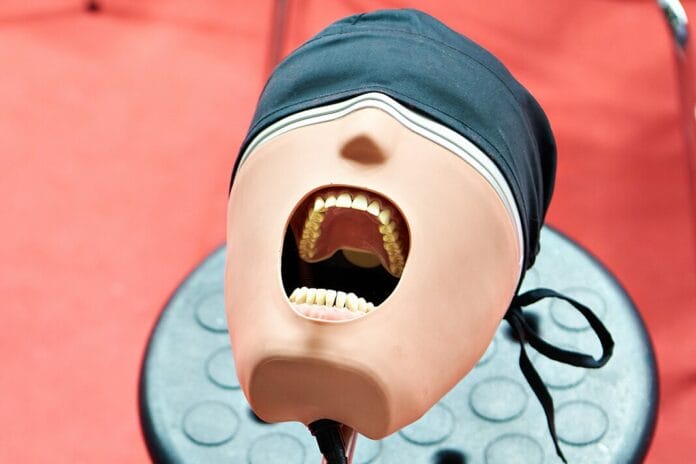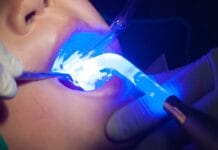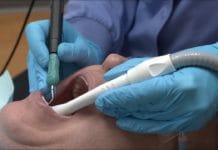Congratulations! You’ve completed your schooling, earned your degree in dental hygiene, and have been licensed. Dentistry is a fulfilling and in-demand field that can provide many opportunities for personal and professional growth.
You may be feeling a bit uneasy or overwhelmed when working alongside more experienced dental hygienists, but the truth is we need each other. Seasoned hygienists can provide mentorship to new hygienists, and new grads can provide a fresh perspective to experienced hygienists.
Here are four tips to consider as you begin your new dental hygiene career.
1) Don’t let anyone treat you poorly
You may not get your dream job right away, and that’s okay. What’s not okay is having an employer or coworker treat you unfairly. No job is perfect, and not everyone gets along well, but create boundaries of acceptable interactions.
For example, if a dentist speaks to you unprofessionally and puts you down in front of a patient instead of pulling you aside to speak with you privately, that’s a huge red flag. You can definitely have a discussion where you explain why a certain behavior was upsetting. However, if you notice a pattern of poor treatment, you might want to start looking for another office. You don’t have to put up with a hostile environment.
I found myself in a negative workplace and made myself wait six months to see if it got better. I was afraid switching offices too quickly would look bad on my resume. Instead, I just made myself miserable for six months and postponed the inevitable. I needed to leave that office.
New grads may feel like their employment options are limited. However, dental hygienists are in constant demand, and new positions are becoming available all the time. Listen to your gut when deciding whether or not to change offices. Some issues are fixable, such as being short-staffed or lacking organization. An employer who is unappreciative, rude, or condescending might not be as easily fixed.
2) Don’t let the bad habits of others lower your standards
During hygiene school, we have instructors guiding us and ensuring we adhere to the highest standards of patient care. After we graduate, it is up to us to continue to meet those high standards of care.
However, some practitioners may start to cut corners. There is pressure to complete procedures and bring in production. There are also constant time constraints in dental appointments. It certainly is an adjustment from the longer appointment times given in school to the shorter appointments of the working world. Try to build up your speed and efficiency, but don’t let outside forces lead you to cut corners.
For example, just because no one in your office is taking the time to perform a thorough intraoral and extraoral exam doesn’t mean you should follow suit. Also, if a patient has high blood pressure readings that contraindicate treatment, don’t let your dentist or office manager talk you into seeing the patient anyway.
As a new graduate, the desire to please your employer is especially high. But we must hold our ground and be an advocate for our patients. We also must protect ourselves as practitioners. Be a good example to your team and lift them up to your standards.
3) Don’t burn bridges
It’s good to have boundaries, but it’s also important to have tact. Even in big cities, the dental community is relatively small and interconnected. Many dental professionals know one another, so it’s important not to burn bridges.
I’ve seen a surprisingly high number of hygienists not show up for their temp shifts or working interviews. I’ve seen people quit with no notice. Even if you’re sure you never want to work at an office again, you should try to stay on good terms with everyone.
Be professional in your interactions with colleagues, even if they aren’t professional with you. You never know who is going to pop back up in your professional life.
4) Get everything in writing
As hygienists, we know the importance of thorough documentation in patient records. “If it wasn’t documented, it didn’t happen” is a common phrase in health care. So, why should we settle for verbal discussions when it comes to the terms of our employment?
I’ve seen numerous posts in online dental hygiene forums about employers who have made promises and then failed to deliver. Some examples are renegotiation of salary after a probationary period, bonus options, and if and when new instruments are provided. I highly recommend written documentation of any employer/employee agreements.
You might have an offer of employment extended to you over the phone or in person. In this case, you can let the employer know that you are interested in the position and would like a written offer that you can keep for your records. This is standard practice in many industries, but dental offices often still operate under verbal agreements.
With a written agreement, both parties will be able to remember exactly what they agreed on. This doesn’t guarantee that your employer will honor their word, but it provides proof of precisely what was agreed to. As your employment continues, request an email or written memo of any changes to your employment agreement or any promises made by your employer.
In Closing
New graduates must navigate office dynamics and integrate into the workforce. It might take time to find your perfect job, and you may end up taking a less-than-ideal job in the meantime. But you can still protect your interests and properly care for your patients.
It is important you know your worth, maintain the highest patient care standards, and always conduct yourself professionally.
Dental hygiene programs excel at teaching students to provide top-notch patient care. But keep in mind learning doesn’t stop when school ends!












